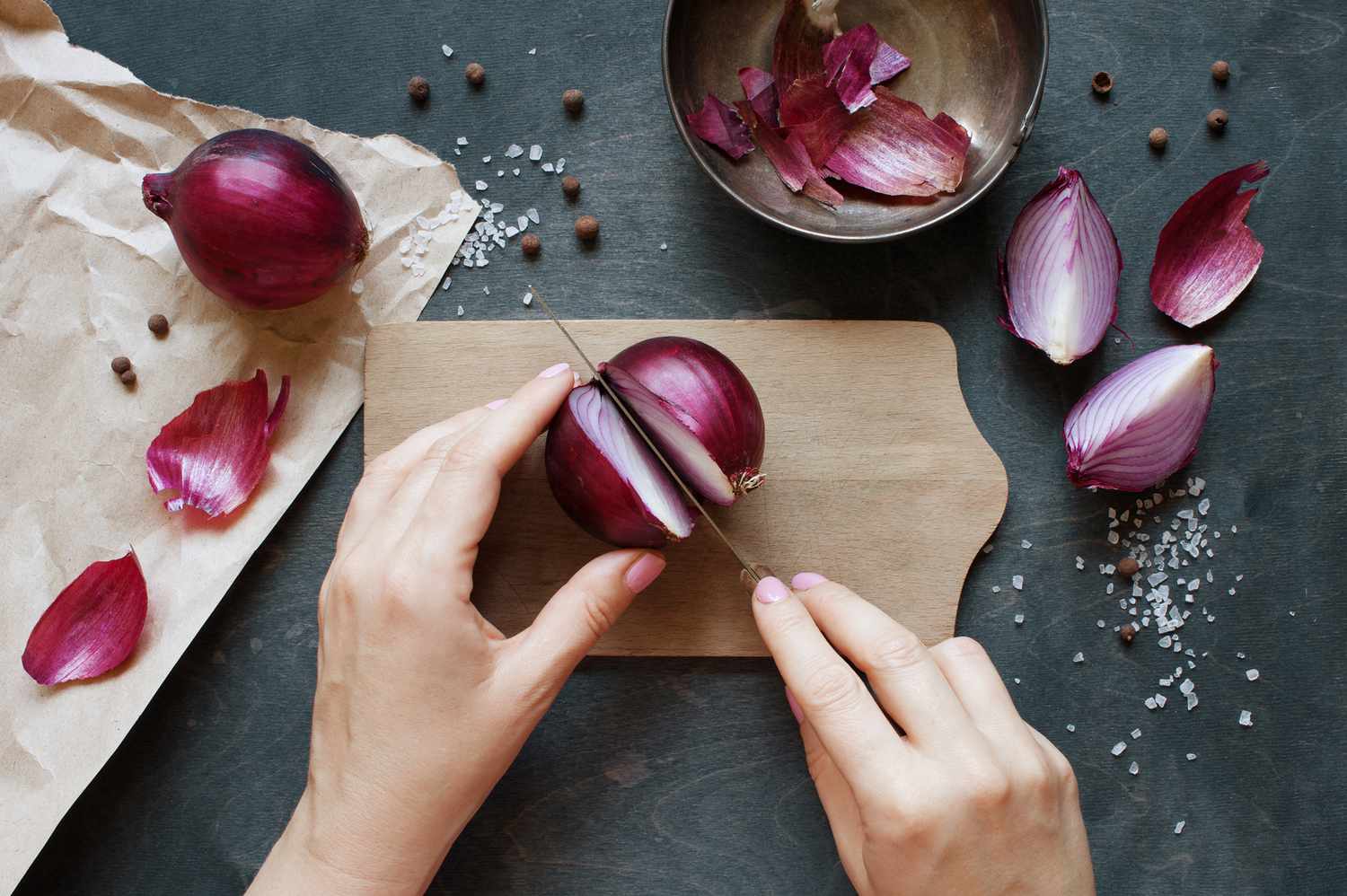Google “Are cut and raw onions poisonous?” and you’ll find heaps of alarmist warnings.
You might read bloggers handing out warnings (without any scientific source) like this: “Remember that it is dangerous to cut an onion and try to cook it the next day, it becomes very toxic if you don’t only one night and creates toxic bacteria that can cause stomach infections due to excess bile secretions and even food poisoning.”
And this: “Onions are a huge magnet for bacteria, especially uncooked onions. You should never plan to save a serving of a sliced onion. It’s not even safe if you put it in a bag zipper and you put it in your fridge.”
Also: “Often when we have stomach problems we don’t know what to blame. Maybe it’s the onions that are to blame. Onions ABSORB BACTERIA is why they are so good for us prevent catching colds and flu and that is why we should NOT eat an onion that has been sitting for a while after being cut.”
Sentiments vary in wording, but the bottom line for internet wellness “experts” is to stay far, far away from cut and raw onions. They claim that they suck bacteria out of the air and become poisonous, dangerous and pathogenic orbs.
These claims can start worrying you about a previously benign food, and the number of different sources spitting out this claim may make you think twice. On the other hand, like many of my friends, I’ve eaten onions pretty much my whole life and haven’t been seriously ill yet, or even sick. So I decided to dig a little.
Are cut and raw onions poisonous or toxic?
“There is no validity [to this myth] at all,” Ellen Steinberg, Ph.D., RD, LD, food safety specialist, told me.
For starters, the chemical makeup of onions just doesn’t support the growth of bacteria, she explained. Their low pH (i.e. acidic nature) and low protein content means they are not an ideal breeding ground for germs, viruses or other pathogens.
In fact, the opposite is true: onions contain compounds that have antibacterial properties.
“When cut, onions release compounds that do not support the growth of pathogens,” the National Onion Association said in a statement. statement published on their website. “The Center for Food Safety at the University of Georgia states that the juice released from the cut onion is known to kill or inhibit the growth of several types of microorganisms, including some of those capable of causing food poisoning in the man.”
According to National Onion AssociationThis myth that onions are poisonous stems from several different sources, including a popular belief from the 1919 flu epidemic that cut onions left around the house will fight off the flu virus, and a blog post by 2008 through Dinner with Zola who claims that onions and potatoes cause more food poisoning than spoiled mayonnaise. The blog post, which has since been deleted, sparked Chicken Little-style chain emails and sensationalist warnings that, though officially debunked, still exist on the internet today.
So when it comes to raw onions – and onions in general – is there anything humans should be worried about?
“There’s nothing unique about the poor little onion,” food safety expert Jeff Nelkin told me. “The only introduction of poison and bacteria would be strictly environmental [e.g. from contaminated soil or unhygienic food prep.]”
Like any other type of soil-grown food, there is a (very rare) potential for onions to have E. coli, salmonella, or other viruses that can be spread via toxic fertilizers, Nelkin explained. But this risk is quite low and no greater in onions than in any other type of food taken from the soil.
How long do chopped onions last?
Overall, there are “no safety measures unique to an onion that wouldn’t be true to apples, carrots, or any other type of product,” Steinberg confirmed. “All the same rules apply to anything you would take out of a garden.”
These rules include washing hands and kitchen utensils thoroughly and wiping down counters with sanitizer before beginning the food preparation process so as not to introduce outside contamination, Nelkin recommended.
When you follow these safe food practices, cut onions “can be stored in the refrigerator in a sealed container for up to 7 days,” says the National Onion Association. The only caveat: if you notice mold, just throw it away.
